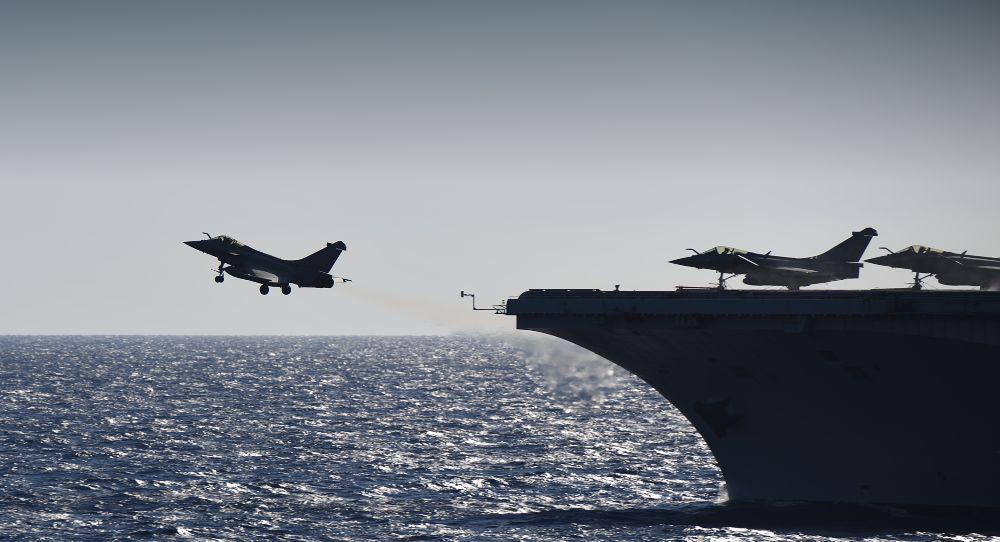With the recent escalation in the Eastern Mediterranean, the European Union has reached a watershed moment.
The retrenchment of the United States from Europe and even from the Middle East had already created a window for the EU to assert itself as the key actor in conflict management and settlement in and around Europe’s neighborhood.
Now, the crisis in the Eastern Mediterranean is a real opportunity to demonstrate the coming of age of the EU as a credible foreign policy actor.Yet by the same token, a divided and ineffective EU will show that, under the circumstances, these aspirations remain nothing but a romantic objective.
So far, the EU has had real difficulty in reaching a common position in terms of how to address the situation in the Eastern Mediterranean where Turkey, Greece, and Cyprus are in conflict over the control of undersea energy resources.
Nicosia’s threat to block the EU’s slated Belarus sanctions has only raised the stakes for the EU.
The hardliners led by France, Greece, and Cyprus have defended a strong and reactionary EU policy with targeted sanctions against Turkey. Their claim rests on the assumption that Turkey has violated the national sovereignty of Greece and Cyprus by engaging in seismic research and drilling in the exclusive economic zones of these two EU member states.
The combative rhetoric of the Turkish leadership combined with an excessive reliance on hard-power tactics has, in the meantime, helped entrench the perception in European public opinion of Turkey as the aggressor.
Yet in reality, this assumption is very difficult to defend.
First and foremost, the allegation that the area of operation of the Turkish gas research vessel Oruç Reis overlays the continental shelf of Greece rests on the claim that the continental shelf of the Greek island of Kastellorizo—situated two kilometers off the southern coast of Turkey with a total surface area of less than 10 square kilometers—covers 40,000 square kilometers.
That is how Greece ends up with an extensive maritime boundary to the detriment of Turkey, the country with the longest seashore in the whole of the Mediterranean.
It is true that under the United Nations Convention on the Law of the Sea, islands do have continental shelves. But the convention formalizes the right to claim a continental shelf, not the scope of it.
In reality, the size of the continental shelf of an island is dependent on many factors, such as its population, its proximity to the mainland, and its level of residual economic activity.
To counter the Greek claims, Turkey advanced its own hypothetical map for the partition of the Eastern Mediterranean. Turkey’s version of the Mare Nostrum—the Mediterranean—as formalized by the Turkey-Libya maritime-border agreement of November 2019 grants no continental shelf nor exclusive economic zone to the Greek islands.
Rhodes and Crete are awarded only 6 nautical miles of territorial waters. An argument that would be difficult to defend for most islands—with the exception of Kastellorizo—but easier to understand given that the dispute has now turned into a battle of maximalist narratives.
Further to the east, the ongoing political division of Cyprus creates yet another layer of complications.
The existence of two different state structures—with the Turkish Republic of Northern Cyprus recognized internationally only by Turkey—leads to conflicting claims over the rights of hydrocarbon exploration in the exclusive economic zone of Cyprus.
Turkey also contests the right of Greek Cypriots to commercialize offshore gas resources in the absence of a prior agreement over the fair distribution of these revenues between the island’s Turkish and Greek communities.
Yet one more time, the EU hardliners’ position makes no concessions to the realities on the ground. As if the Greek Cypriots had not torpedoed the 2004 referendum on the UN’s Annan Plan for reunification, which would have settled the Cyprus question once and for all.
And as if the main stumbling point to any real progress since then had not been the Greek Cypriots’ refusal to recognize the political equality of the Turkish Cypriots. Turkey’s maneuvers are in reality a reaction to the consequences brought about by the strategic mistake that enabled Cyprus to become an EU member despite its ongoing political division.
Cognizant of these facts, German Chancellor Angela Merkel strived to position Germany as a mediator and reposition the EU as a credible facilitator.
Upon Berlin’s initiative, high-level delegations from Turkey and Greece met in July 2020, a first since bilateral talks were suspended in 2016 in the wake of the botched military coup in Turkey.
The aim of German diplomacy is to create the conditions for Ankara and Athens to resolve their many disputes directly or, alternatively, to reach an agreement over a framework that can ultimately be submitted to international adjudication. It is no coincidence that both Turkish President Recep Tayyip Erdoğan and Greek Prime Minister Kyriakos Mitsotakis have called for direct negotiations as the way forward.
Yet Germany’s efforts are undermined by its own EU ally, France.
By blindly supporting the Greek position and sending its own warships and fighter planes to the region, Paris has not only contributed to the militarization of the conflict but is also damaging the prospects of negotiations by incentivizing the hardliners in Greece and in Turkey.
In Ankara, French President Emmanuel Macron’s statements are read as an unconditional acknowledgment of the Greek position that the sole source of the conflict is Turkey’s unwillingness to accept Greek sovereignty over the Eastern Mediterranean. His statements are also used to justify the argument that the EU can have no role in the management of this dispute.
After so many years of striving to build up its foreign policy credentials, the EU faces—over the Eastern Mediterranean—a real test of its ambitions and capabilities as an effective foreign policy actor.
And the outcome will be determined by whether Germany’s proclivity to neutralism and smart diplomacy can overcome France’s aspirations for unilateralism and hard-power confrontation.







